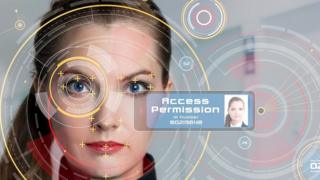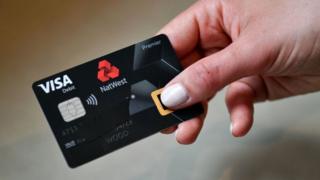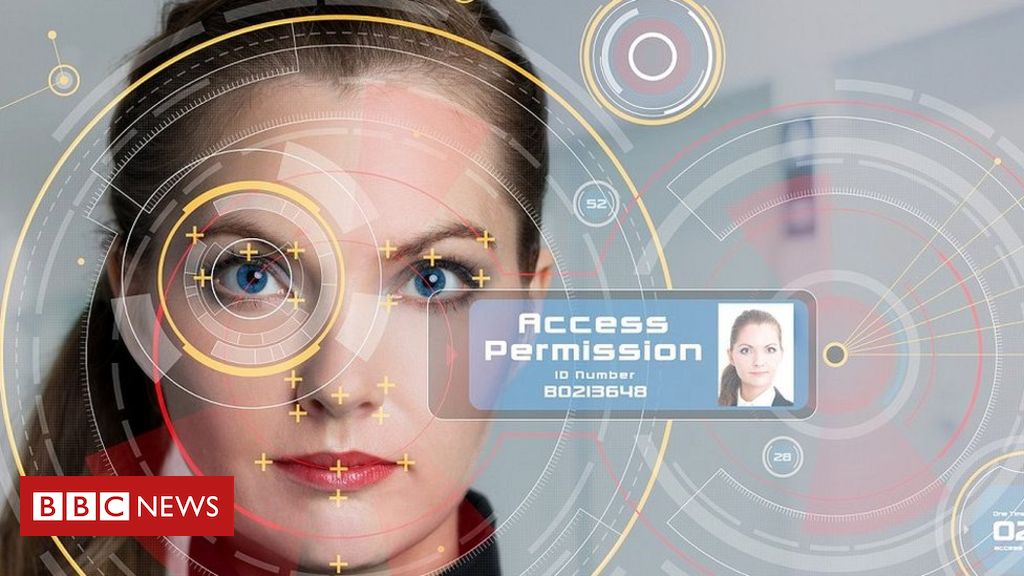 Image copyright Getty Images
Image copyright Getty Images “Sarah”, a star based in London, had her identity taken in 2017. “I got house one day and discovered my post box had actually been gotten into,” she states.
“I had 2 brand-new charge card authorized which I had not made an application for, and a letter from one bank, stating we’ve altered our mind about providing you a charge card.”
She invested £ 150 on credit monitoring services alone attempting to locate cards released in her name.
“It’s a substantial quantity of work and cash,” states Sarah, who asked the BBC not to utilize her genuine name.
Identity theft is at an all-time high in the UK. The UK’s scams avoidance service CIFAS tape-recorded 190,000 cases in the previous year, as our significantly digitised lives make it much easier than ever for scammers to get their hands on our individual info.
So how should we keep our identities safe and secure online? The very first line of defence is, most of the time, a password.
But these have actually remained in the news recently for all the incorrect factors. Facebook confessed in April that the passwords of countless Instagram users had actually been saved on their systems in an understandable format – disappointing the business’s own finest practices, and possibly jeopardizing the security of those users.
Late in 2015, question-and-answer site Quora was hacked with the names and e-mail addresses of 100 million users jeopardized. And Yahoo! just recently settled a claim over the loss of information coming from 3 billion users, consisting of e-mail addresses, security concerns and passwords.
 Image copyright Getty Images
Image copyright Getty Images No marvel that Microsoft revealed in 2015 that the business prepared to exterminate the password, utilizing biometrics or an unique security secret.
IT research study company Gartner anticipates that by 2022, 60% of big companies and practically all medium-sized business will have cut their reliance on passwords by half.
“Passwords are the simplest technique for aggressors,” states Jason Tooley, primary profits officer at Veridium, which supplies a biometric authentication service.
“People tend to utilize passwords that are simple to bear in mind and for that reason simple to jeopardize.”
Not just would eliminating passwords enhance security, it would likewise suggest IT departments would not need to invest important money and time resetting forgotten passwords.
“There is a yearly expense of around $200 (£ 150) per staff member connected with utilizing passwords, not consisting of the lost efficiency,” states Mr Tooley.
“In a big organisation that’s an actually substantial expense.”

- Wheels of fortune: The brand-new electrical motors
- The race to develop a flying electrical taxi
- Ghost webs: Tackling the quiet killer of the seas
- Shooting drones out of the sky with Phasers
- Holy tech! Churches attempt brand-new methods to link

‘New threats’
Philip Black is industrial director at Post-Quantum, a business developing effective file encryption systems for securing information.
He concurs that passwords are currently a powerlessness. “You need to produce and handle a lot of passwords. That’s uncontrollable, so individuals wind up utilizing the very same passwords, and they end up being a vulnerability.”
New guidelines put down by the EU are created to handle that problem. The upgraded Payment Services Directive, referred to as PSD2, need services to utilize a minimum of 2 elements when verifying a consumer’s identity.
These can be something the consumer has in their ownership (such as a bank card), something they understand (such as a PIN), or something they are, that includes biometrics.
 Image copyright Getty Images
Image copyright Getty Images Overlooked in the past in favour of tokens, passwords, and codes sent out by SMS, interest in biometrics is growing. According to the 2019 KPMG International Global Banking Fraud Survey, 67% of banks have actually purchased physical biometrics such as finger print, voice pattern and face acknowledgment.
This year, NatWest started trialling debit cards with a finger print scanner developed straight into the card itself.
Biometrics provide a more smooth customer experience, however has actually been kept back by the requirement for specialised devices. With the most recent mobile phones, much of us now bring the essential hardware in our pockets. Research study by Deloitte has actually discovered that a fifth of UK homeowners own a smart device efficient in scanning finger prints, which number is increasing quickly.
Yet simply as our individual information is susceptible to burglars, biometric details can likewise be taken. In September, Chinese scientists at a cybersecurity conference in Shanghai revealed it was possible to catch somebody’s finger prints from a picture drawn from numerous metres away.
If you believe resetting your password is challenging, attempt altering your finger prints.
To improve security, business are significantly counting on numerous element authentication (MFA) which looks for to recognize individuals utilizing as several methods as possible.
This can consist of not simply specific procedures such as PINs and finger print scans, however background familiarity checks such as your area, purchase history, keystrokes, swiping patterns, phone identity, even the method which you hold your phone.
 Image copyright Bunq
Image copyright Bunq “Is biometrics going to change passwords? No, a mix of elements is going to change passwords, we are and we ought to be approaching this,” states Ali Niknam, president of Bunq, a mobile banking service.
Yet there is a threat of that this sort of multi-factor authentication, while protected, will make the authentication procedure much more nontransparent. If you do not understand what is being utilized to determine you online, how can you safeguard that info?
“I’m cautious about web security – my date of birth isn’t anywhere, my address isn’t anywhere,” states Sarah.
“I’m 33, tech-savvy and fairly young, however I’m uncertain I ‘d understand how to be more mindful.”
She does keep in mind, nevertheless, that a person bank at first declined to cancel the account the burglar had actually opened in her name, since she didn’t understand the password.
Read more: https://www.bbc.co.uk/news/business-49877317


Recent Comments